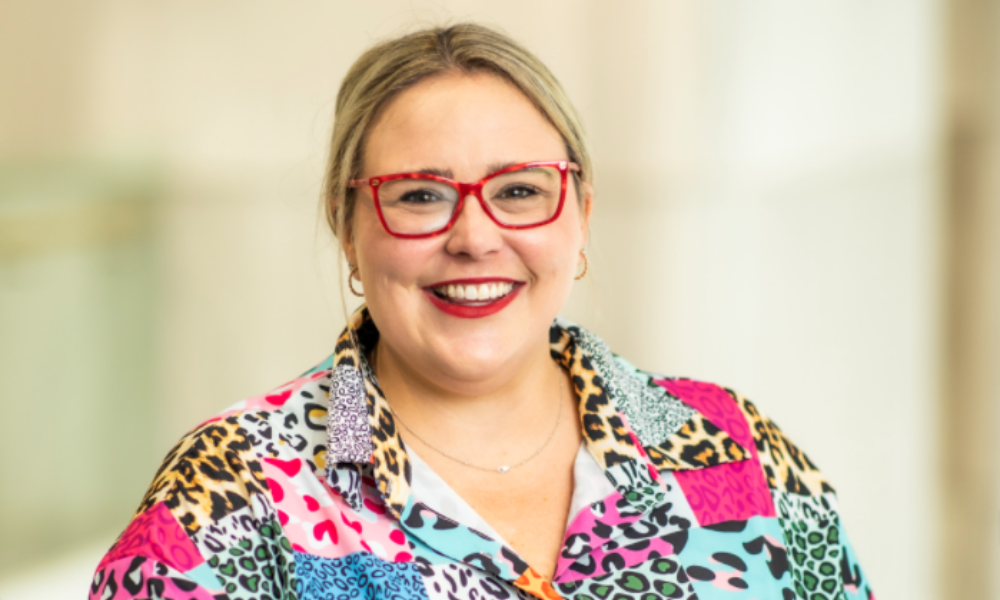
'You can't retrofit an EVP – to be sustainable, it needs to be true and authentic to who you are,' says HR leader

The pandemic that grounded airlines at the start of 2020 was cruel to many airlines such as Virgin Australia, which accepted government support and flew limited routes until it entered voluntary administration in April.
Three-and-a-half years later, with a new CEO and a new owner, it was turning a profit again. And with its fleet back in the sky, the carrier saw an opportunity to think deeply about its human assets.
“We got down as low as a few thousand employees and needed to rebuild to the 7,500 or more we have today,” said Samantha Carlton, general manager of people operations. “We had a real challenge on our hands.”
The blaze of recruitment required a refreshed employee value proposition (EVP), she said, “to make sure our process of rebuilding was done in a way that would enable us to build sustainably”.
Virgin is a challenger brand, after all, “right back to the Richard Branson days,” Carlton said.
The airline landed on ‘Virgin Flare,’ a corporate attitude that recognises the right for employees to be who they are.
“To truly benefit from the wisdom and experience and knowledge of our people, we need to create an environment where they are empowered to bring their whole authentic selves to work every single day,” Carlton said. “It enables us to dig deeply into candidate pools to make sure we’re bringing in the right people who will have really long-lasting careers with us.”
An EVP can’t just be “right for the moment”, she said. “It would have been very simple to come out of administration and create an EVP that simply … gave people what it would take to bring them through the doors. But you can’t retrofit an EVP. To be sustainable, it needs to be true and authentic to who you are.”
New recruits won’t stick around long if reputation doesn’t match reality, said Carlton, who will be speaking about Virgin’s focus on retention at the HRD HR Brisbane Summit on 12 November.
The airline has learned through business cycles, as has Carlton. She has been with Virgin Australia about 18 months but draws on 14 years’ experience in the resources sector.
To her, current demand for pilots and for licensed aircraft maintenance engineers recalls the market for skilled workers towards the end of the mining boom in the early 2000s.
“We were looking at letting about 3,000 coal mining employees go and, at the same time, we were looking to stand up about 2,000 oil and gas construction workers,” she said. “Rather than looking at two very separate challenges, we wondered, ‘How could we look at ways to cross-skill and multi-skill, to bring some of those people on the journey with us?’”
The airline is backing its pledge to workers with incentives and benefits, such as:
“It’s those sorts of things we believe mean that when people get in the door, even if those policies don’t apply to their personal circumstances, they see this as a place where the executive leadership team and board are looking at initiatives that truly meet the expectations of our candidates and employees,” Carlton said.
If CVs in the future list a handful of careers – not jobs — for companies, it will mean redesigning training, for example, for return on investment to be kept in line. Say a cabin manager signs on from another carrier. Under today’s system, that person would have to start from scratch, with no recognised prior learning, she said.
“There’s no Cert III for cabin management,” Carlton said. “These are the challenges we need to stare into, because six weeks’ investment in training before someone can be [deployed] where you’re going to get 24 months out of people looks very, very different.”
EVP policy at HR Summit Brisbane
At the HRD HR Summit Brisbane, Carlton will deliver a case study presentation “Rethinking the employee value proposition to boost retention strategies”, focusing on how Virgin Australia retains employees in a competitive market.
She will discuss:
Register for the HRD HR Summit Brisbane here.